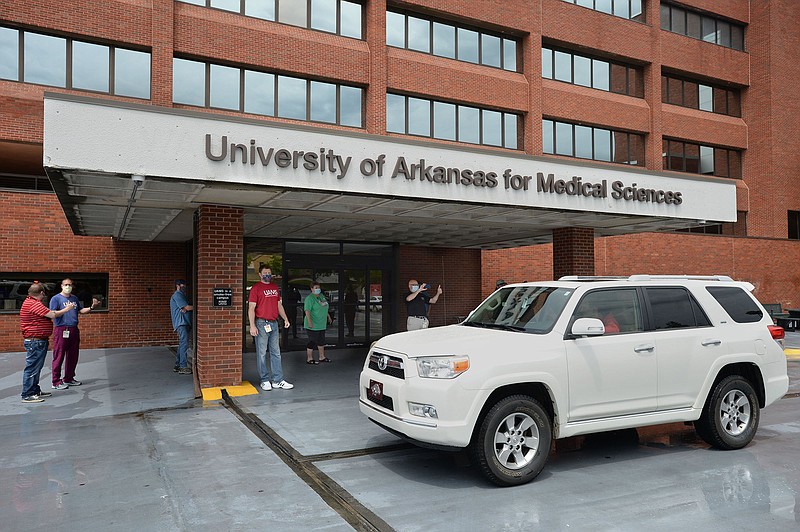SPRINGDALE -- In the face of the covid-19 pandemic, Marshallese communities displayed "creative resilience," according to research conducted by the University of Arkansas for Medical Sciences.
Community Health & Research faculty at UAMS recently contributed a chapter on Marshallese populations to the book "Creative Resilience and COVID-19," published by Routledge, according to a news release.
The chapter, "It's Like Not a Very Marshallese Way of Life," explores how Marshallese communities in the United States responded to the challenges of the pandemic.
Marshallese residents make up less than 3% of Northwest Arkansas' population. During the summer of 2020, 17% of the region's covid-19 infections were in the Marshallese community, according to the release.
The community also made up 14% of covid-19 hospitalizations, seeing 372 deaths per 100,000 people. The regional average was five deaths per 100,000.
"The covid-19 pandemic hit and shocked us and changed us forever," said Melisa Laelan, founder and chief executive director of the Arkansas Coalition of Marshallese. "I remember seeing the report on the first few deaths in Northwest Arkansas, and the majority of them were from the Marshallese community. I knew them. They were frequent visitors to our office, and we knew them by name. The personal connection to the pandemic was definitely close to us in the community."
A UAMS study, "Pandemic-Amplified Material Hardship and Community-Led Support among Marshallese Diasporic Communities in the United States," was the first article to present Marshallese accounts of challenges and relief during the pandemic, according to the release. It involved nine focus group interviews from September to November 2020 with 53 participants from Arkansas, Hawaii and Oklahoma.
"We learned during this study that while the pandemic took a toll on everyone over the last two years, the Marshallese community was uniquely impacted, due to economic and social disparities, and partly because of their cultural practices surrounding celebrations, food and family," said Dr. Ramey Moore, assistant professor.
According to the study, participants described job and income loss due to the pandemic. They also said federal, state and employer-based aid was difficult to access, the release states.
"Not only did the Marshallese community experience a higher-than-average death rate from the coronavirus pandemic, but it also radically affected their way of life," Moore said. "Despite those effects, this chapter highlights how the Marshallese community was able to adapt to covid-19 precautions and maintain culturally significant family relationships through the use of technology and other creative outlets."
Groups including churches, religious groups and nonprofit organizations, organized by and for the Marshallese community, played a significant role throughout 2020, according to the study.
The community-based aid provided in response to increased material needs was overwhelming, the release states.
"It was refreshing to see that although many of us have spent the majority of our lives in the states, our culture of helping one another is still with us," said Eldon Alik, Marshall Islands consulate general in Springdale.
More than 10,000 Marshallese and Hispanic residents in Arkansas received education, contact tracing and other resources from UAMS and its partners during the pandemic, according to the release.
The Arkansas Department of Health had reported 11,409 deaths from covid-19 as of Monday. More than 77% of Arkansans who have died from covid-19 since February 2021 were not fully vaccinated, according to the department.
"Thousands of miles away from our homeland, living in an individualistic society, we are still a close-knit community," said Benetick Maddison of the nonprofit Marshallese Educational Initiative. "Hopefully, this will be our last pandemic, but the community will be ready to help each other again whatever the next crisis is."
